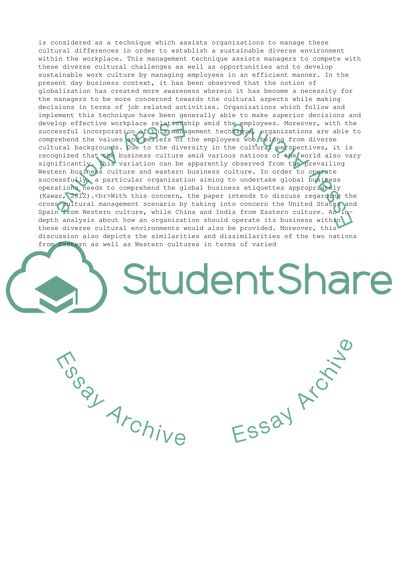Cite this document
(Cross Cultural Management Essay Example | Topics and Well Written Essays - 3250 words - 1, n.d.)
Cross Cultural Management Essay Example | Topics and Well Written Essays - 3250 words - 1. https://studentshare.org/management/1794769-cross-cultural-management
Cross Cultural Management Essay Example | Topics and Well Written Essays - 3250 words - 1. https://studentshare.org/management/1794769-cross-cultural-management
(Cross Cultural Management Essay Example | Topics and Well Written Essays - 3250 Words - 1)
Cross Cultural Management Essay Example | Topics and Well Written Essays - 3250 Words - 1. https://studentshare.org/management/1794769-cross-cultural-management.
Cross Cultural Management Essay Example | Topics and Well Written Essays - 3250 Words - 1. https://studentshare.org/management/1794769-cross-cultural-management.
“Cross Cultural Management Essay Example | Topics and Well Written Essays - 3250 Words - 1”. https://studentshare.org/management/1794769-cross-cultural-management.


